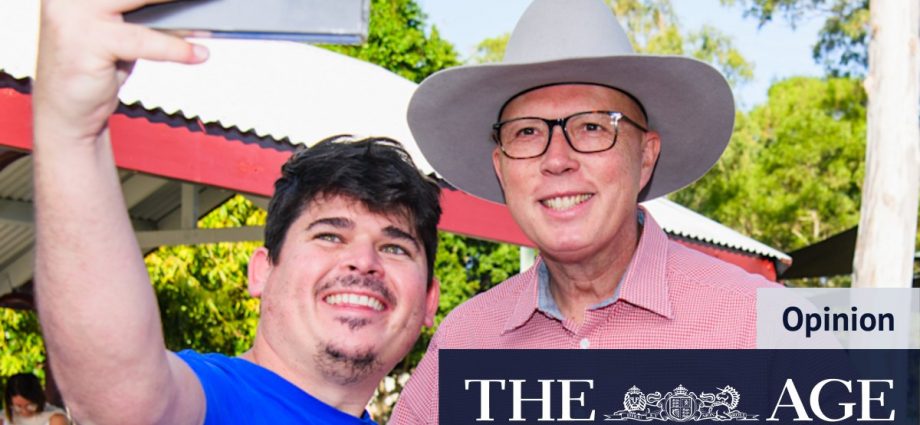Of course, I don’t think I’m entitled to anybody’s time – especially not someone as busy as a person trying to become the next prime minister. But for context, 87 per cent of our podcast audience is women aged 18-34. Our episodes have been downloaded 40 million times since we began, and more than 200,000 people download and listen to our podcast episodes every single month.
Loading
I don’t say all of this to brag (although I am extremely proud of what my team and I have built), but to explain why I had hoped Peter Dutton would be willing to speak to us about the Coalition’s policies and what his priorities for the next three years would be if elected.
Since the beginning of this year, Australians who listen to my podcast or follow our content on social media have been raising the issues most important to them, and that they want answers to.
From affordable housing, the cost of living, becoming parents, healthcare and education, these are some of the questions that I would have liked to have asked Dutton:
1. In your mind, what is the single-most pressing issue for Australians right now?
2. At the height of the COVID-19 pandemic, the Morrison government allowed people to access up to $10,000 per financial year from their superannuation. Now, as part of your housing policy, the Coalition is proposing people be able to access up to $50,000 of their superannuation to put towards a house deposit.

Anthony Albanese recently appeared on Abbie Chatfield’s podcast, while Peter Dutton sat down with Sam Fricker.
Do you think the superannuation system should be changed or redesigned to allow Australians to have greater access to their retirement fund throughout their working lives?
3. During the Sky News leaders’ debate, you were asked if university fees would increase as a result of decreasing international student numbers, and you said no. But under a Coalition government, university fees rose in 2017 and 2020, and the income threshold to repay HECS debt was lowered.
In some cases, the price of degrees increased by over 100 per cent. How can current or prospective university students be confident that more increases won’t occur if the Coalition returns to government?
4. Roughly 60 per cent of current uni students and graduates are women, who are entering a jobs market where they are being paid 78¢ to every dollar an Australian male makes.
How is the Coalition planning to close the gender pay gap, and why doesn’t it support reducing higher education debt, which disproportionately impacts women?
5. Though the Coalition’s plan to end working from home freedoms for public servants has been axed, when it was first announced, there was a lot of criticism that the policy would disproportionately have a negative impact on working mums.
In response, you said “there are plenty of job-sharing arrangements”. What did you mean by that?
6. Childcare is one of the biggest expenses for Australian families right now. Over a month ago, the Coalition said it would release its policy on this issue closer to polling day, but one week out to election day and we’re still waiting.
Loading
Does the Coalition have a childcare policy for this election, and if yes, how will it bring down costs for Australian families?
7. In your interview with Mark Bouris, you said that many Australian men “are fed up” and that there is a growing feeling that women are being prioritised for promotions over men. Do you personally feel that way?
8. In that same interview, you said that often the reason men are going for promotions at work is because their female partner has chosen to stay at home with the kids. What do you think the role of fatherhood should look like in modern Australia?
9. Throughout this campaign, you’ve asked Australians if they believe they are better off today than they were three years ago when Labor came to power. If elected, how will the lives of Australian women be better in 2028?
Victoria Devine is an award-winning retired financial adviser, bestselling author and host of Australia’s No.1 finance podcast, She’s on the Money. She is also the founder and director of Zella Money.
- Advice given in this article is general in nature and is not intended to influence readers’ decisions about investing or financial products. They should always seek their own professional advice that takes into account their own personal circumstances before making any financial decisions.
Expert tips on how to save, invest and make the most of your money delivered to your inbox every Sunday. Sign up for our Real Money newsletter.




